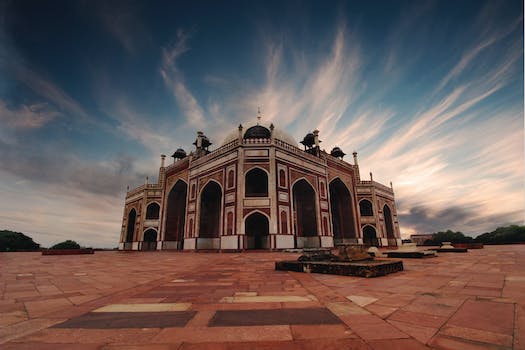-
Table of Contents
- Introduction
- Exploring the Rich Cultural Heritage of African Tribes
- Celebrating the Unique Traditions of African Tribes
- Investigating the Ancient Rituals of African Tribes
- Examining the Role of Music and Dance in African Tribal Culture
- Understanding the Significance of African Tribal Art and Crafts
- Conclusion
Awaits!
Introduction
Africa is a continent full of diverse cultures, languages, and traditions. From the vibrant music and dance of the Maasai in Kenya to the ancient rock art of the San Bushmen in Botswana, Africa is a place of rich cultural experiences. Tribal traditions and heritage are an integral part of African culture, and they provide a unique insight into the history and beliefs of the people who live there. From traditional ceremonies and rituals to the art and music that is passed down through generations, African tribal traditions and heritage offer a unique window into the past. This article will explore some of the most fascinating cultural experiences in Africa, from the colorful celebrations of the Zulu in South Africa to the ancient rituals of the Yoruba in Nigeria.
Exploring the Rich Cultural Heritage of African Tribes

The African continent is home to a vast array of cultures, languages, and traditions. From the ancient Egyptians to the modern-day Zulu, African tribes have a rich and diverse cultural heritage that is worth exploring.
The ancient Egyptians are perhaps the most well-known of African tribes. They were a powerful and influential civilization that left behind a legacy of art, architecture, and literature. The Egyptians were also known for their religious beliefs, which included the worship of gods and goddesses.
The Zulu are another African tribe with a rich cultural heritage. The Zulu are known for their vibrant music and dance, as well as their traditional clothing and jewelry. The Zulu are also known for their strong sense of community and their commitment to preserving their culture.
The Maasai are a semi-nomadic tribe from East Africa. They are known for their colorful clothing and their traditional dances. The Maasai are also known for their strong sense of community and their commitment to preserving their culture.
The Yoruba are a West African tribe that is known for their vibrant music and dance. The Yoruba are also known for their traditional clothing and jewelry, as well as their strong sense of community and their commitment to preserving their culture.
The Himba are a tribe from Namibia that is known for their traditional clothing and jewelry. The Himba are also known for their strong sense of community and their commitment to preserving their culture.
The Tuareg are a nomadic tribe from the Sahara Desert. They are known for their traditional clothing and jewelry, as well as their strong sense of community and their commitment to preserving their culture.
The African continent is home to a vast array of cultures, languages, and traditions. Exploring the rich cultural heritage of African tribes is a great way to gain insight into the history and culture of the continent. From the ancient Egyptians to the modern-day Zulu, African tribes have a rich and diverse cultural heritage that is worth exploring.
Celebrating the Unique Traditions of African Tribes
African tribes have a rich and diverse history that is often overlooked. From the Maasai of Kenya to the Himba of Namibia, each tribe has its own unique customs and traditions that have been passed down through generations. In this blog post, we’ll take a look at some of the most interesting and unique traditions of African tribes.
The Maasai of Kenya are known for their elaborate and colorful dress. The men wear bright red blankets and beaded jewelry, while the women wear colorful skirts and headdresses. The Maasai also practice a form of ritual scarification, where they make cuts in their skin and rub in a mixture of ash and fat to create intricate patterns.
The Himba of Namibia are known for their unique hairstyles. The women wear their hair in two braids that are decorated with ochre and butter. The men wear their hair in a single braid that is decorated with feathers and beads. The Himba also practice a form of body painting, where they use ochre and butter to create intricate patterns on their skin.
The Zulu of South Africa are known for their vibrant and energetic dances. The Zulu use traditional drums and singing to create a lively atmosphere. The Zulu also practice a form of divination, where they use bones and other objects to predict the future.
The Tuareg of Niger are known for their nomadic lifestyle. The Tuareg are a semi-nomadic people who travel across the Sahara Desert in search of food and water. The Tuareg also practice a form of tattooing, where they use henna to create intricate patterns on their skin.
The Yoruba of Nigeria are known for their vibrant and colorful clothing. The Yoruba use bright colors and patterns to create beautiful and unique garments. The Yoruba also practice a form of divination, where they use cowrie shells to predict the future.
African tribes have a rich and diverse history that is often overlooked. From the Maasai of Kenya to the Himba of Namibia, each tribe has its own unique customs and traditions that have been passed down through generations. These traditions are a reminder of the beauty and diversity of African culture and should be celebrated and appreciated.
Investigating the Ancient Rituals of African Tribes
The ancient rituals of African tribes have long been a source of fascination for anthropologists and historians alike. From the elaborate ceremonies of the Zulu to the spiritual practices of the Yoruba, the rituals of African tribes offer a unique insight into the culture and beliefs of these ancient societies. In this blog post, we will explore some of the most fascinating rituals of African tribes and their significance in the lives of the people who practice them.
The Zulu are one of the most well-known African tribes, and their rituals are some of the most elaborate. The Zulu practice a variety of ceremonies, from the Umhlanga, a coming-of-age ritual for young men, to the Umcimbi, a celebration of the harvest. These rituals are often accompanied by singing, dancing, and the use of traditional instruments. The Zulu believe that these rituals help to bring the community together and ensure the prosperity of the tribe.
The Yoruba are another African tribe with a rich history of ritual practices. The Yoruba believe that their rituals are a way to connect with their ancestors and the spiritual world. They practice a variety of ceremonies, from the Egungun, a masquerade ritual to honor the dead, to the Ikin, a ritual to honor the gods. These rituals often involve the use of traditional music, dance, and costumes.
The Maasai are a semi-nomadic tribe from East Africa. They practice a variety of rituals, from the Eunoto, a coming-of-age ceremony for young men, to the Enkang, a ritual to honor the gods. These rituals often involve the use of traditional music, dance, and costumes. The Maasai believe that these rituals help to bring the community together and ensure the prosperity of the tribe.
The rituals of African tribes are an important part of their culture and beliefs. These rituals often involve the use of traditional music, dance, and costumes, and they are a way for the people to connect with their ancestors and the spiritual world. By understanding the rituals of African tribes, we can gain a better understanding of their culture and beliefs.
Examining the Role of Music and Dance in African Tribal Culture
Music and dance are integral components of African tribal culture. They are used to celebrate important events, such as births, weddings, and funerals, as well as to mark the changing of the seasons and the passing of time. Music and dance are also used to express emotions, to tell stories, and to communicate with the gods.
Music is an important part of African tribal culture. It is used to express joy, sorrow, and other emotions. It is also used to tell stories, to honor ancestors, and to communicate with the gods. African music is often characterized by its use of drums, percussion instruments, and vocal harmonies. Traditional African music is often accompanied by dancing, which is used to express emotions and to tell stories.
Dance is an important part of African tribal culture. It is used to celebrate important events, such as births, weddings, and funerals. It is also used to mark the changing of the seasons and the passing of time. African dance is often characterized by its use of rhythm, movement, and improvisation. Traditional African dance is often accompanied by music, which is used to express emotions and to tell stories.
Music and dance are important components of African tribal culture. They are used to celebrate important events, to mark the changing of the seasons, and to express emotions. They are also used to tell stories, to honor ancestors, and to communicate with the gods. Music and dance are integral parts of African tribal culture and are essential to understanding and appreciating its rich history and traditions.
Understanding the Significance of African Tribal Art and Crafts
African tribal art and crafts are an important part of the continent’s cultural heritage. These works of art and craftsmanship are a reflection of the values, beliefs, and traditions of the African people. They are also a source of pride and identity for many African communities.
African tribal art and crafts are often used to tell stories, express emotions, and communicate ideas. They are also used to celebrate important events, such as weddings, births, and funerals. African tribal art and crafts are often used to decorate homes and other public spaces.
African tribal art and crafts are also used to create objects of spiritual significance. These objects are often used in rituals and ceremonies. They are also used to create symbols of protection and power.
African tribal art and crafts are often made from natural materials, such as wood, clay, and stone. They are often decorated with symbols and patterns that have special meanings. These symbols and patterns often represent the beliefs and values of the African people.
African tribal art and crafts are an important part of the continent’s cultural heritage. They are a source of pride and identity for many African communities. They are also a way to tell stories, express emotions, and communicate ideas. African tribal art and crafts are a beautiful and meaningful way to celebrate the African culture.
Conclusion
In conclusion, cultural experiences in Africa are incredibly diverse and unique. From the vibrant tribal traditions and heritage to the stunning landscapes and wildlife, Africa is a continent full of beauty and culture. It is a place where people can learn about different cultures, explore new places, and gain a deeper understanding of the world. Whether you are looking for a cultural experience or just a chance to explore, Africa is the perfect destination.















